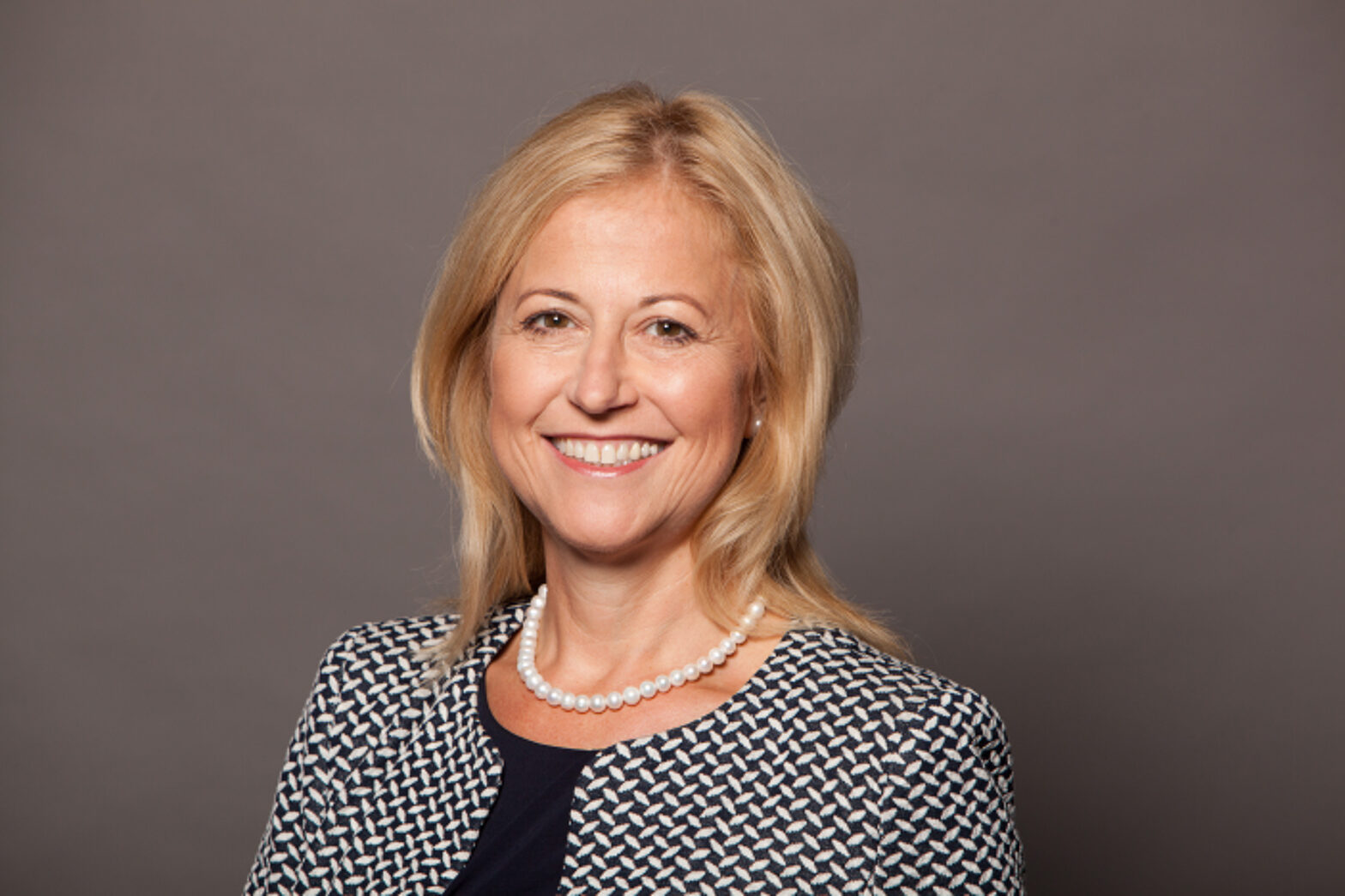Jane Galvin, head of corporate banking, has been with HSBC for two years, having previously spent 32 years at Barclays, having joined as a school leaver. She spent 16 years in corporate banking at Barclays before joining HSBC in 2017.
At HSBC Jane Galvin is personally responsible for around 12,000 business accounts, supporting scale-ups with annual turnover of anything between £6.5 million up to £350 million.
Galvin comes across as disarmingly honest and, waving her Mont Blanc pen as she makes a point, a class act. We meet in an HSBC office in the City of London ironically directly above the deeply trendy peer-to-peer SME lender Funding Circle, which seems emblematic considering the current position of business banking.
Is HSBC at all concerned that the SME lending market is becoming overheated?
There’s always competition in the market, and that’s healthy. What fintechs have brought is the risk of disruption. However, I don’t see it as a risk to HSBC’s business. I’ve flown a helicopter over businesses for many years, and that kind of expertise cannot be replaced by a new entrant. What we offer is connectivity around the world.
Isn’t a concern that entrepreneurs turn to their high-street banks first, and if they’re turned down for a loan, they go on to other lenders?
If your bank tells you not to borrow, sometimes it’s good advice and you should listen to it.
Why should a scale-up come to HSBC as opposed to another high-street bank?
Our USP is that we can connect you with global trade opportunities and connect you with clients who have seen things or experienced the same challenges themselves. We focus on connecting businesses together. Our biggest piece is how we support them to grow through international trade.
We’re an international bank and we can help businesses look beyond Britain. We’ve got people on the ground who can help businesses grow in overseas markets.
Next month we’re taking 20 clients out to China to explore trends in Asia. We’ve seen businesses grow quickly once they go into Asian markets. We guide them to meet people over three-and-a-half days.
You go to China and it only needs to go to one province for a business to grow quite substantially. If you look at a lot of our fast-growth businesses, 70pc will be growing through international growth, and of course the internet is a massive aid to that as well.
‘I sleep well at night knowing that we’ve informed businesses and given them opportunities’
So, what you’re saying is that businesses have got to start thinking beyond just the UK and Europe?
Absolutely. We often have colleagues from overseas branches who come to the UK and talk about the opportunities in that country. I have a responsibility to make sure businesses are informed. It’s up to businesses whether they want to use that information to make the right decisions for themselves. Often with small growing businesses, they are often so busy and have so few resources, we have a responsibility to help open their minds, and then the decision’s up to them. I sleep well at night knowing that we’ve informed businesses and given them opportunities.
What are common misconceptions about business banking?
One of our worries is that the perception that banks don’t want to lend, and that’s something we’re looking to change. One of the things we did last summer was launching a £12bn fund to help UK businesses.
There’s a strange perception among businesses that banks only want to lend money to you. That’s not the case at all. Clients will sometimes say, ‘Sorry, we don’t want to borrow money from you’ and we say, ‘But we look after your finances generally.’ Looking after your deposits is just as important to us.
I’m quite a simple girl: we lend money, we look after money and we can help them trade with many, many countries around the world, and, for me, those are the three simple things HSBC offers.
What are the most common challenges facing scale-ups?
Businesses don’t have certainty because of Brexit but one thing they can be certain of is relationship support to help them through their transition.
One of the things we’ve been doing businesses is helping them look at their supply chain overseas. Is it robust enough to withstand the shock of Brexit?
What’s your advice for any business that wants to scale up?
Businesses have to look outside the UK and Europe and connect to the global economy. Do that, and you’ll reap the rewards. My sense of purpose is that I wanted to join the bank that I thought was going to do the greatest good for the UK economy as a whole.
With international trade, some of the businesses we deal with grow quite quickly. The wonderful thing about our structure at HSBC is that businesses can grow within the same relationship teams. Often, we will buddy a scale-up; we can bring in other people from our team as they need greater financial support around more strategic advice.
Are there any common problems affecting businesses that want to grow?
There are a number of things that hamper them. As businesses look to grow, they need the right people running that business. As an entrepreneur, you have passion and drive and understand what your company stands for. As businesses grow, there’s a danger of losing that authenticity.
‘For me, being an adviser is much bigger than just being a banker’
But doesn’t that really mean retaining staff?
It’s making sure they get the right team around them, relevant for the team at the time, and the right partners around them – including a bank – to act as a critical friend, to provide the challenge when it’s needed. A bank should be your critical friend. Our responsibility is to have a duty of care to a business. We may see something that’s not working but if a management team comes to us and says, “It’s not working” then we can help them – maybe through talking to other businesses that have been through similar challenges. For me, being an adviser is much bigger than just being a banker. It’s not just about providing finance. We succeed if they succeed.
What happens if my company gets into distress? Banks have a dreadful reputation for consigning troubled businesses to restructuring departments they never leave.
We have a team of special managers alongside existing relationship manager to give the best support to those clients. Actually, many of those clients come out of there much healthier as a result, as they get more intense support. Often, we will help find the right staff such as a CFO or alternative investment or connecting them to business angels. Sometimes the right thing is to sell that business, and again we can help them with that. I have not had any customer complain that getting specialist support has been not been advantageous to the business. I’ve met many clients who’ve been with those specialist managers, and when they come out the other side, they’ve been really thankful.
What percentage do emerge the other side?
Around 85pc.
Why do you think the percentage of companies using external finance is dropping?
Businesses have become more cash rich in the last few years. If we turn the clock to the financial crisis, it was a great lesson for businesses learning to keep cash within their businesses. Companies have more cash now to prepare themselves for shocks. Because of the length of time Brexit has taken, businesses have made sure they protect themselves against a downturn in the economy by taking less money out of the business.
What other trends are you seeing?
I do see businesses a bit more reluctant to give away a percentage of the business. But sometimes giving away equity is the right thing for a business, and with that comes outside expertise in the form of non-executive directors – which is something that shouldn’t’ be undervalued.
What one piece of advice you would offer to an ambitious entrepreneur?
Deliver on what you’re going to deliver. Either with the quality of the goods or the delivery of the goods. Really successful companies do that really well. If you lose your client following, you have to focus on delivering what you say you’re going to deliver. If you can’t, be honest. Communicate. Pick up the phone or email your customers.








